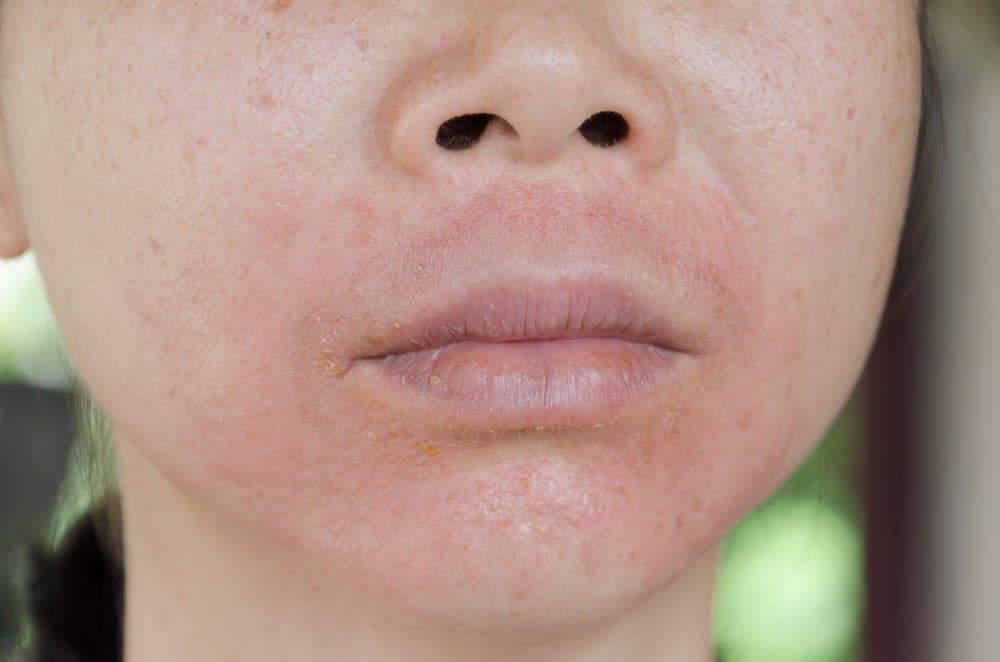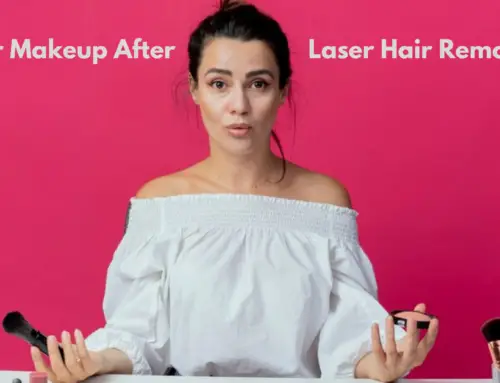When it comes to makeup, many people consider it an essential tool for enhancing their appearance. However, what most people may not realize is that makeup can have negative effects on their skin. In fact, research has shown that frequent use of makeup can lead to various skin problems.
One significant reason why makeup is bad for your skin is that it can clog your pores. The various ingredients in makeup, such as oils and silicones, can accumulate in your pores and prevent them from breathing properly. This can result in breakouts, blackheads, and even infections. Moreover, some makeup products contain harsh chemicals and allergens, which can cause irritation and allergic reactions in sensitive individuals.
Makeup can be bad for your skin if not used properly. It can clog pores, leading to breakouts and skin irritation. Some makeup products also contain harmful chemicals that can cause allergic reactions or damage the skin’s natural barrier. It’s important to choose non-comedogenic and hypoallergenic makeup, cleanse your skin thoroughly, and allow it to breathe without layers of makeup. Additionally, removing makeup before bed is crucial to prevent potential harm. Remember, moderation and proper skincare routine are key for healthy skin.

The Negative Effects of Makeup on Your Skin
Makeup has become an integral part of our daily routines, helping us enhance our natural beauty and boost our confidence. However, while makeup may make us look glamorous on the surface, it can have negative effects on our skin. From clogged pores to skin irritation, the regular use of makeup can take a toll on our skin’s health. In this article, we will explore the reasons why makeup can be bad for your skin.
1. Clogged Pores and Acne Breakouts
One of the main reasons why makeup is bad for your skin is that it can clog your pores. When you apply makeup, it creates a barrier on your skin, trapping oil, dirt, and dead skin cells. Over time, this build-up can lead to clogged pores, which can result in acne breakouts and blackheads. The heavy ingredients in some makeup products, such as foundation and concealer, can further exacerbate this issue.
2. Skin Irritation and Allergic Reactions
Another downside of using makeup is the potential for skin irritation and allergic reactions. Many makeup products contain chemicals, fragrances, and preservatives that can cause skin sensitivity, redness, itching, and swelling. Some individuals may develop allergic reactions to certain ingredients in makeup, leading to more severe symptoms like rashes, hives, or even dermatitis.
3. Dryness and Dehydration
Makeup, particularly powder-based products, can contribute to dryness and dehydration in the skin. These products can absorb the skin’s natural oils, leaving it feeling parched and tight. Over time, this can lead to a compromised skin barrier function and may result in flakiness, dullness, and an increased risk of premature aging.
The Impact of Makeup on Skin Health
1. Reduced Skin Respiration
Makeup can interfere with the natural respiration process of your skin. When you apply makeup, it restricts the flow of oxygen to your skin cells. This can affect the skin’s ability to renew itself and repair any damage. Without sufficient oxygen, your skin may become dull, lifeless, and prone to breakouts.
2. Accumulation of Toxins
Makeup products often contain toxins like parabens, phthalates, and heavy metals. These toxins can accumulate in the skin over time, leading to inflammation and other adverse effects. Prolonged exposure to these harmful substances can disrupt the skin’s natural balance and potentially contribute to long-term health issues.
3. Slower Skin Regeneration
Regular use of makeup can hinder the natural process of skin regeneration. When you wear makeup for extended periods, it can prevent dead skin cells from shedding properly, leading to a build-up on the surface of your skin. This can result in a dull complexion, rough texture, and an increased likelihood of breakouts.
How to Mitigate the Negative Effects of Makeup
While makeup can have negative effects on your skin, there are steps you can take to minimize these effects and maintain healthier skin:
- Choose makeup products that are labeled “non-comedogenic” or “oil-free” to reduce the risk of clogged pores.
- Remove your makeup thoroughly every night using a gentle cleanser to unclog pores and allow your skin to breathe.
- Hydrate your skin with a moisturizer suitable for your skin type to combat dryness caused by makeup.
- Take regular makeup-free days to give your skin a break and allow it to recover.
- Consult a dermatologist if you experience persistent skin issues or allergic reactions from makeup.
Comparing the Effects of Different Types of Makeup
It’s important to note that not all makeup products have the same negative effects on the skin. Some makeup formulations may be worse for your skin than others.
Liquid Foundation
Liquid foundation can be particularly problematic for people with oily or acne-prone skin. The oil-based nature of liquid foundation can contribute to clogged pores, leading to breakouts. However, there are oil-free and non-comedogenic liquid foundations available that are less likely to cause acne.
Powder Foundation
Powder foundation tends to be less clogging than liquid foundation because it allows the skin to breathe more. However, excessive use of powder foundation can still lead to dryness and accentuate lines and wrinkles.
Concealer
Concealer can be a lifesaver for covering imperfections, but it can also contribute to clogged pores and dehydration. Opt for a lightweight, non-greasy concealer and avoid applying it to areas that are prone to breakouts.
Conclusion
While makeup can enhance our appearance and confidence, it’s important to be aware of its potential negative effects on the skin. Clogged pores, acne breakouts, skin irritation, and dryness are some of the common consequences of regular makeup use. However, by choosing the right products and practicing proper skincare, you can mitigate these effects and maintain healthier skin. Remember to take regular makeup-free days and consult a dermatologist if you have any persistent skin issues or allergic reactions. Your skin deserves to be beautiful and healthy, both with and without makeup.
Key Takeaways: Why is Makeup Bad for Your Skin?
- Makeup can clog pores and lead to breakouts and acne.
- Some makeup products contain harmful chemicals that can irritate the skin.
- Wearing makeup for extended periods can prevent the skin from breathing and cause dryness.
- Removing makeup improperly can also damage the skin barrier.
- Regularly giving your skin a break from makeup can help maintain its health and balance.
Frequently Asked Questions
Makeup is a popular tool for enhancing beauty and boosting confidence. However, using makeup regularly can have negative effects on your skin. In this section, we will address common concerns about the potential drawbacks of makeup application and its impact on skin health.
1. What are some common skin issues caused by makeup?
Makeup can contribute to various skin issues, including clogged pores, acne breakouts, irritation, and dryness. The ingredients in makeup products, such as oil-based foundations or heavy concealers, can clog pores and lead to the formation of blackheads or whiteheads. Additionally, some individuals may develop allergies or sensitivities to certain makeup ingredients, resulting in redness, itching, or rashes.
Regularly wearing makeup without proper cleansing can disrupt the natural balance of your skin, leading to dryness or excess oil production. This can further exacerbate existing skin conditions like eczema or rosacea. It’s important to note that not everyone experiences these issues to the same extent, as individual skin types and sensitivities vary.
2. How does makeup affect the aging process of the skin?
Makeup can contribute to the aging process of the skin in several ways. Firstly, heavy or thick makeup formulations can settle into fine lines and wrinkles, making them appear more prominent. Prolonged use of makeup can also result in collagen breakdown, as certain ingredients in makeup products can damage the skin’s natural collagen production. Over time, this can lead to the formation of wrinkles and sagging skin.
In addition, makeup may not provide sufficient protection against harmful UV rays unless specifically formulated with sunscreen. Sun exposure without proper sun protection can accelerate the aging process and increase the risk of skin damage, including dark spots and uneven pigmentation.
3. Can makeup worsen existing skin conditions?
For individuals with certain skin conditions, makeup can potentially worsen symptoms or trigger flare-ups. People with acne-prone skin should be cautious when choosing makeup products, as they can clog pores and exacerbate acne breakouts. Similarly, individuals with sensitive skin or dermatitis may experience irritation, redness, or itching when using certain makeup formulations.
If you have an existing skin condition, consult with a dermatologist who can recommend suitable products and provide guidance on how to minimize potential risks associated with makeup use.
4. How can I minimize the negative effects of makeup on my skin?
To minimize the potential negative effects of makeup on your skin, consider the following tips:
– Choose makeup products labeled as “non-comedogenic” or “oil-free” to reduce the likelihood of clogged pores.
– Cleanse your face thoroughly before bed to remove all traces of makeup, allowing your skin to breathe and regenerate overnight.
– Use makeup brushes or sponges instead of your fingers to apply products, as this can reduce the transfer of bacteria and prevent contamination.
5. Is it necessary to take breaks from wearing makeup?
While it is not necessary to completely abstain from wearing makeup, taking occasional breaks can give your skin a chance to breathe and recover. Consider going makeup-free on days when you don’t have any important engagements or events. This will allow your skin to maintain its natural balance and reduce the risk of potential makeup-related skin issues.
If you have concerns about your skin, it’s always best to consult with a dermatologist who can provide personalized advice based on your specific skin type and needs.
Is Makeup Bad For You?
Makeup can be harmful to your skin for several reasons. First, many products contain chemicals and irritants that can cause allergies and skin sensitivities. These ingredients can lead to redness, inflammation, and breakouts.
Second, frequent use of heavy makeup can clog your pores, leading to acne and blackheads. It can also disrupt the natural balance of oil production in your skin, leading to dryness or excessive oiliness.
Lastly, removing makeup improperly or sleeping with it on can prevent your skin from breathing and renewing itself, resulting in dullness and premature aging. Therefore, it’s important to cleanse your skin thoroughly and give it time to breathe without makeup.






Leave A Comment